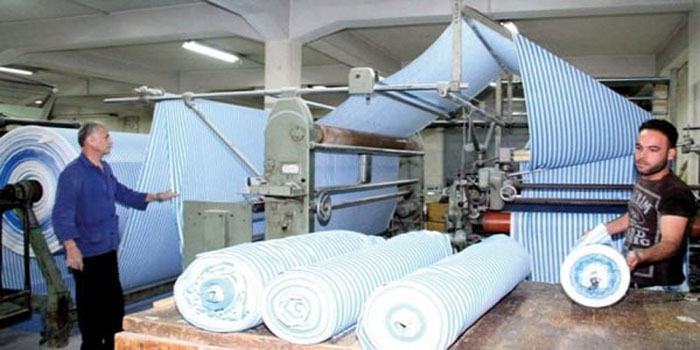Like other companies affiliated with the Ministry of Industry, the United Arab Industrial Company “Molasses” operates according to an open “business strategy” agreed upon with both the institution and the ministry to increase productivity, exploit the available material and human capabilities in the company, and implement the directives of the production plan that was approved at the beginning of the current year, according to the confirmation of Engineer Abdul Rahman Al-Yousef, General Manager of the company.
Eng. Al-Yousef stressed that its goal is to increase the production and marketing capabilities of industrial institutions and companies in order to secure the needs of public authorities and the local market alike, especially for textile products in light of the economic blockade and sanctions that have affected all governmental and private sectors.
This necessitated the company taking a number of measures to increase production capacity through maintenance of machines and production lines, which had halted during the previous stage. The company is still suffering from technical, marketing and financial aspects, and many other work problems as a result of weak capabilities.
This calls for optimism – for according to Al-Youssef’s assertion the company’s productivity during the first quarter of the current year has improved significantly. Its value exceeded the ceiling of seven billion liras, while the value of total sales was estimated at around six billion, most of this production for the benefit of public authorities and the local market of fabrics and other things.
Youssef pointed out that the work was not without some difficulties that obstructed the progress of the production process. For example: the shortage of workers of all categories, and some administrative and technical cadres, especially in the field of microelectronics, electricity. In addition to the financial situation and the lack of liquidity as a result of the crisis conditions, the lack of commitment of public authorities to pay their obligations directly, and most importantly, the significant increase in the prices of production requirements and fuel.
Therefore, solving these problems is not difficult, as they need more cooperation among the relevant authorities to secure basic production requirements and exemptions, and to secure the required labor force.
In addition to providing expertise and scientific qualifications for continuous operation and allocating the required funds to complete the modernization of production lines, with the aim of exploiting the available production capacities through which the economic benefit can be maximized.
Souha Suleiman

